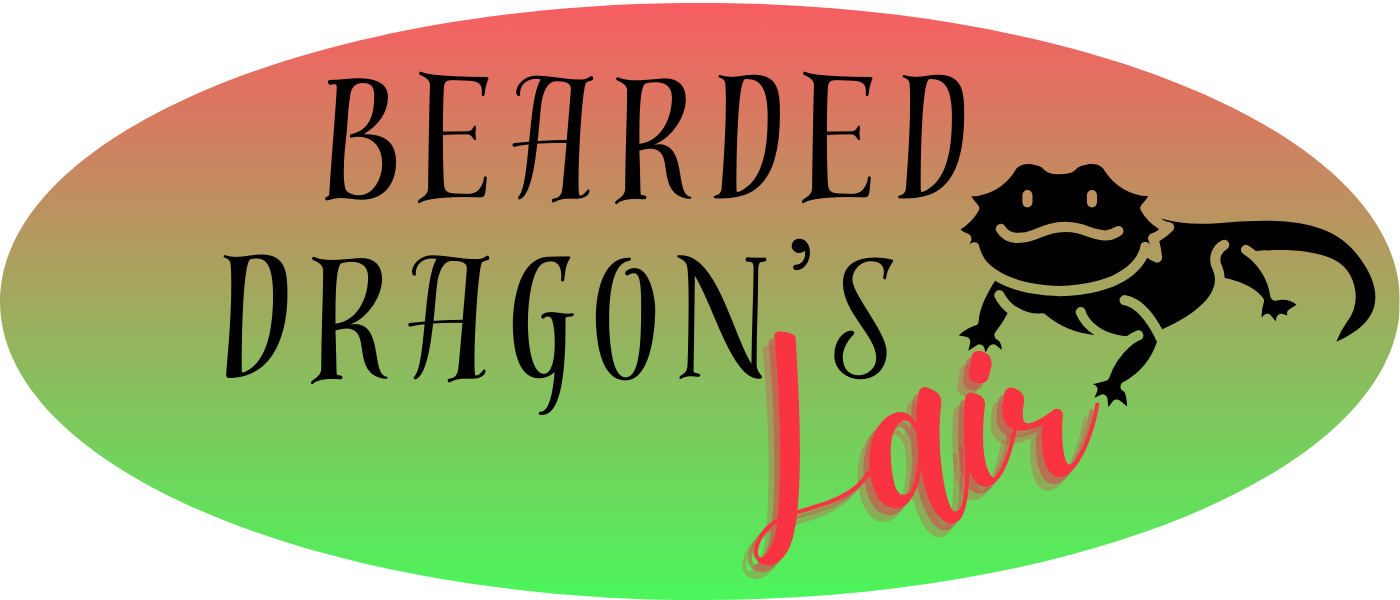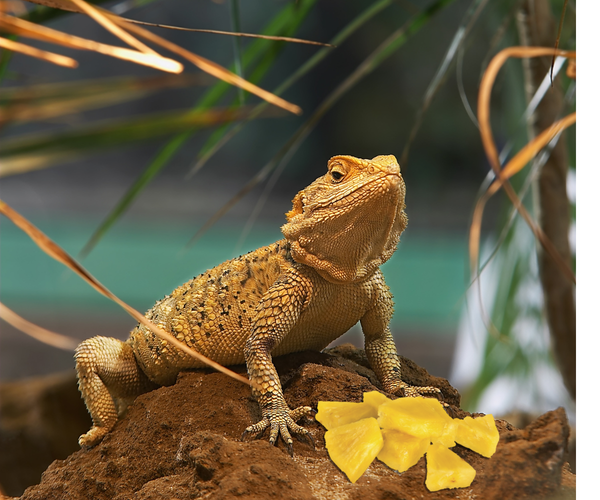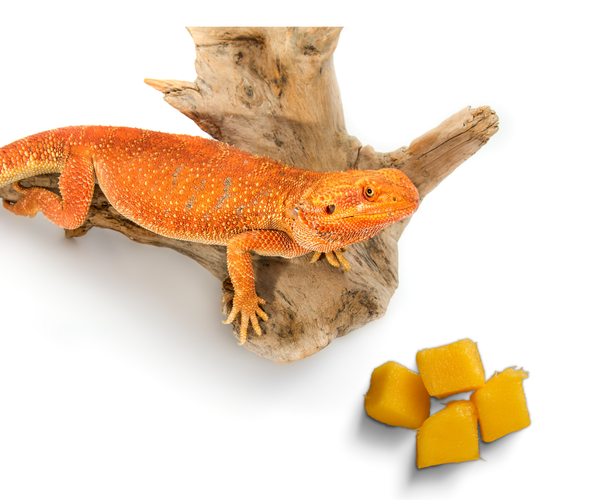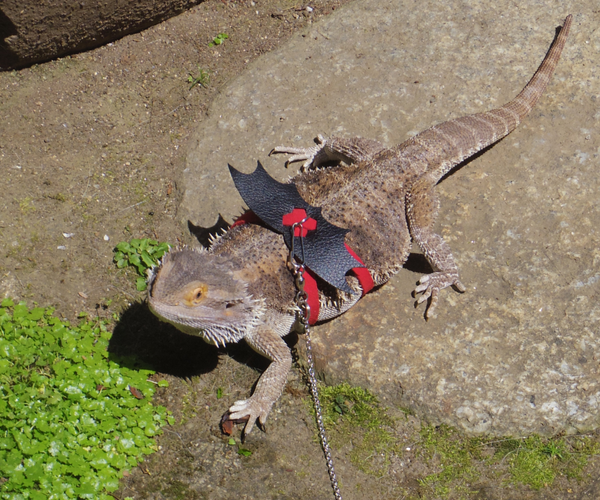Can Bearded Dragons Eat Asparagus?
A good rule of thumb is to include asparagus in your bearded dragon's diet once every two weeks. This frequency allows your pet to benefit from the vegetable's nutrients without risking oxalate overconsumption.
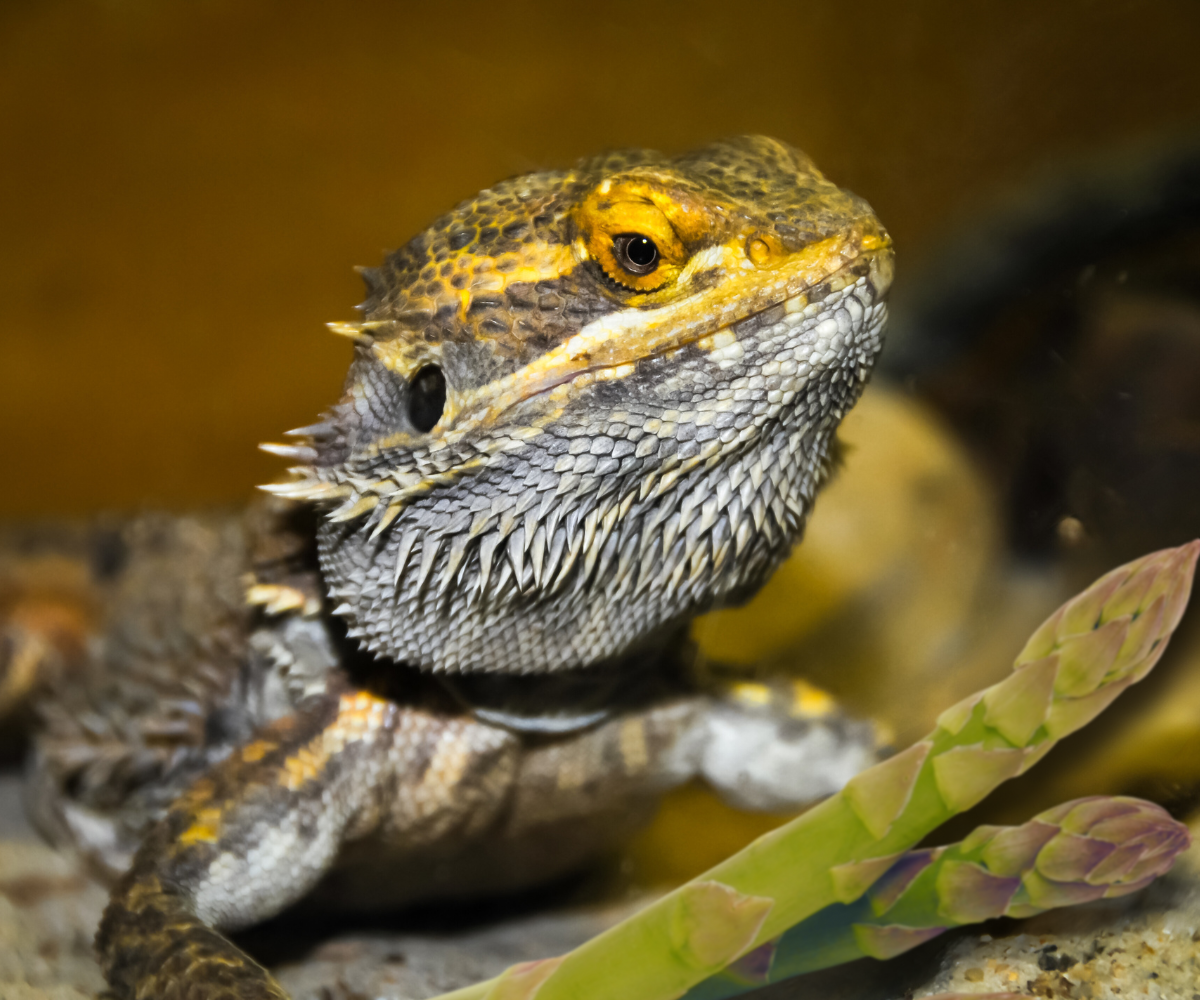
As a responsible bearded dragon owner, understanding what constitutes a healthy diet for your scaly friend is crucial. Owners have asked whether bearded dragons can eat asparagus. This article delves into the nutritional benefits and potential concerns of feeding asparagus to bearded dragons.
Key Takeaways:
- Asparagus can be a nutritious addition to a bearded dragon's diet when offered in moderation.
- It's important to serve asparagus a little at a time to ensure it's safe for bearded dragons to consume.
- If you notice any changes in behavior after feeding asparagus, consult your veterinarian.
Understanding Bearded Dragon Diets
Bearded dragons are omnivores, which means they require a balanced diet of both plant-based and animal-based foods. In the wild, their diet consists of a variety of insects, vegetables, and occasional fruits. Captive bearded dragons should have a similar dietary composition to ensure they receive all the necessary nutrients for optimal health.
Asparagus, a fibrous vegetable, can be part of this varied diet. It contains vitamins and minerals that can be beneficial for bearded dragons when fed in appropriate amounts. However, it's essential to understand the nutritional content of asparagus and how it fits into the overall dietary needs of your pet.
The Nutritional Profile of Asparagus
Asparagus is a low-calorie vegetable that's rich in vitamins A, C, E, K, and B vitamins. It also contains essential minerals like iron, potassium, and phosphorus. These nutrients are important for maintaining a healthy immune system, bone health, and metabolic functions in bearded dragons.
Despite its nutritional benefits, asparagus also contains oxalates, compounds that can bind to calcium and potentially lead to metabolic bone disease if consumed in large quantities. Therefore, asparagus should be offered as an occasional treat rather than a staple in a bearded dragon's diet.
Preparing Asparagus for Bearded Dragons
Before feeding asparagus to your bearded dragon, it's important to prepare it properly. The vegetable should be washed thoroughly to remove any pesticides or chemicals. It's also advisable to cook asparagus lightly to soften the fibers, making it easier for your bearded dragon to digest.
Cutting asparagus into small, bite-sized pieces is crucial to prevent choking hazards. Remember, the size of the pieces should be appropriate for the size of your bearded dragon. Smaller dragons will require smaller pieces compared to their larger counterparts.
Frequency and Portion Size
Asparagus should be fed to bearded dragons sparingly due to its oxalate content. A good rule of thumb is to include asparagus in your bearded dragon's diet once every two weeks. This frequency allows your pet to benefit from the vegetable's nutrients without risking oxalate overconsumption.
The portion size of asparagus should also be limited. A couple of small pieces mixed with other vegetables can create a balanced and varied meal for your bearded dragon. Always observe your pet's reaction to new foods and consult with a veterinarian if you notice any adverse effects.
The Importance of Dietary Variety
A varied diet is key to ensuring your bearded dragon receives all the necessary nutrients. In addition to asparagus, bearded dragons can enjoy a range of other vegetables like bell peppers, squash, and leafy greens. Each vegetable offers different vitamins and minerals, contributing to a well-rounded diet.
Insects such as crickets, mealworms, and dubia roaches should also be included in a bearded dragon's diet to provide the required protein. The balance between plant-based and animal-based foods should be adjusted according to the age and health of your bearded dragon.
Potential Health Concerns
While asparagus is not toxic to bearded dragons, feeding it in large quantities can lead to health issues. The oxalates in asparagus can interfere with calcium absorption, which is vital for bearded dragons to maintain strong bones and prevent metabolic bone disease.
It's also important to monitor your bearded dragon's hydration levels, as asparagus has a diuretic effect. Ensure your pet has access to fresh water at all times, especially after consuming vegetables with diuretic properties.
Introducing Asparagus to Your Bearded Dragon
When introducing asparagus or any new food to your bearded dragon's diet, it's best to do so gradually. Start with a small piece of asparagus to see how your pet reacts. If there are no negative responses, such as refusal to eat or digestive issues, you can slowly increase the portion size over time.
Observing your bearded dragon's behavior and stool can provide insights into how well they are tolerating the new food. Any signs of discomfort or abnormal feces should prompt you to remove asparagus from their diet and consult a veterinarian.
Other Vegetables to Consider
While asparagus can be a healthy addition to a bearded dragon's diet, there are many other vegetables that can be offered more frequently. Vegetables like collard greens, turnip greens, and mustard greens are excellent choices due to their high calcium-to-phosphorus ratio.
Other vegetables such as carrots, cucumbers, and zucchini can also be included in moderation. These vegetables provide variety and additional nutrients that contribute to the overall health of your bearded dragon.
Expert Advice and Care
Before making any significant changes to your bearded dragon's diet, it's always wise to seek advice from a reptile veterinarian or a qualified herpetologist. They can provide tailored recommendations based on your pet's specific needs and health status.
Regular check-ups with a veterinarian can also help detect any nutritional deficiencies or health issues early on. A professional can guide you in creating a diet plan that ensures your bearded dragon thrives.
Summary
Asparagus can be a nutritious treat for bearded dragons when offered in moderation. Its rich vitamin and mineral content can contribute positively to your pet's diet, but due to its oxalate content, it should not be a staple food. Proper preparation and portion control are key to safely incorporating asparagus into your bearded dragon's diet. Always prioritize dietary variety and consult with a veterinarian to provide the best care for your scaly companion.
FAQ Section
Q: How often can I feed my bearded dragon asparagus? A: Asparagus should be fed to your bearded dragon once every two weeks to avoid any potential health issues related to its oxalate content.
Q: Do I need to cook asparagus before feeding it to my bearded dragon? A: Yes, it's recommended to lightly cook asparagus to soften its fibers, making it easier for your bearded dragon to digest. Always cut it into appropriate bite-sized pieces.
Q: What are some other vegetables I can feed my bearded dragon? A: Bearded dragons can enjoy a variety of vegetables such as collard greens, turnip greens, mustard greens, bell peppers, squash, carrots, cucumbers, and zucchini. These should be offered alongside animal-based proteins for a balanced diet.
